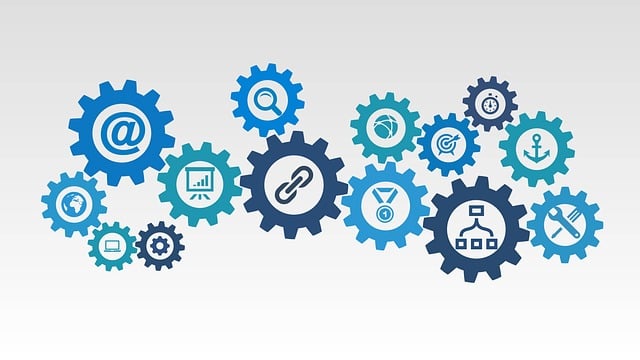In today's digital age, auto businesses are leveraging AI tools to transform their operations. These advanced technologies streamline diagnostics, inventory management, and predictive maintenance, leading to faster service times, improved productivity, and cost savings. AI algorithms analyze historical data for actionable insights, enabling data-driven decisions and uncovering trends in vehicle diagnostics, parts management, and customer behavior. By automating tasks, predicting part failures, and optimizing pricing strategies, AI tools give auto businesses a competitive edge while enhancing customer satisfaction.
In today’s competitive auto industry, leveraging AI optimization strategies is no longer an option but a necessity. This article explores powerful AI tools that are revolutionizing the automotive sector. From enhancing the repair process efficiency to streamlining workflows, these advanced technologies are driving significant improvements in productivity and cost reduction. Discover how data-driven decision making, automation, and intelligent analytics can transform your auto business into a more agile and profitable enterprise.
- Enhancing Automotive Repair Process Efficiency with AI Tools
- Leveraging AI for Data-Driven Decision Making in Auto Businesses
- Streamlining Workflows and Cutting Costs: AI Optimization Techniques
Enhancing Automotive Repair Process Efficiency with AI Tools

In today’s digital era, auto businesses are leveraging AI tools to significantly enhance the efficiency of their repair processes. These advanced technologies streamline tasks such as diagnostic procedures and parts inventory management, enabling faster turnaround times and improved productivity. By integrating machine learning algorithms, auto repair shops can analyze vast amounts of data from previous repairs to predict potential issues, thereby reducing the time spent on troubleshooting.
AI-driven systems also facilitate accurate parts identification and ordering, minimizing human errors and ensuring that technicians have the right components readily available. This optimization results in reduced labor costs, higher customer satisfaction due to faster service, and a competitive edge for auto businesses in the market.
Leveraging AI for Data-Driven Decision Making in Auto Businesses

In today’s digital era, leveraging AI tools for improving automotive repair productivity is revolutionizing auto businesses. These advanced AI tools can analyze vast amounts of data from various sources to provide actionable insights, enabling data-driven decision making. By understanding trends and patterns in vehicle diagnostics, parts inventory management, and customer behavior, auto businesses can optimize their operations, reduce costs, and enhance overall efficiency.
For example, AI algorithms can predict maintenance needs based on vehicle history and usage patterns, allowing for proactive servicing. Additionally, natural language processing (NLP) can be utilized to automate and streamline communication with customers, improving service experiences. By integrating these AI tools into everyday workflows, auto businesses can achieve a competitive edge, ensuring they stay ahead in the market while providing superior services to their clients.
Streamlining Workflows and Cutting Costs: AI Optimization Techniques

Auto businesses can significantly enhance their operational efficiency by leveraging AI optimization strategies. Streamlining workflows is a key benefit, as AI tools can automate repetitive tasks such as data entry and inventory management, freeing up human resources for more complex, value-added activities. By integrating AI into these processes, auto shops can reduce human error, improve accuracy, and speed up turnaround times.
Moreover, AI optimization techniques enable cost cutting measures. Machine learning algorithms can analyze historical repair data to predict part failures, allowing proactive maintenance and minimizing unexpected repairs. Additionally, AI can optimize pricing strategies based on demand, market trends, and labor costs, enhancing profitability. These advancements in AI tools for improving automotive repair productivity ultimately contribute to a more competitive and efficient auto business.
AI optimization strategies, such as leveraging AI tools for improving automotive repair productivity, offer auto businesses significant advantages. By enhancing efficiency in the repair process, enabling data-driven decision making, and streamlining workflows, these technologies not only cut costs but also elevate customer satisfaction. As the automotive industry continues to evolve, embracing AI will be key to staying competitive and profitable.
